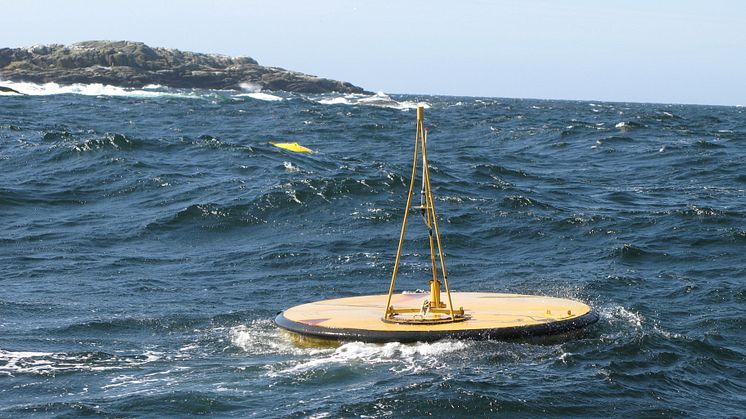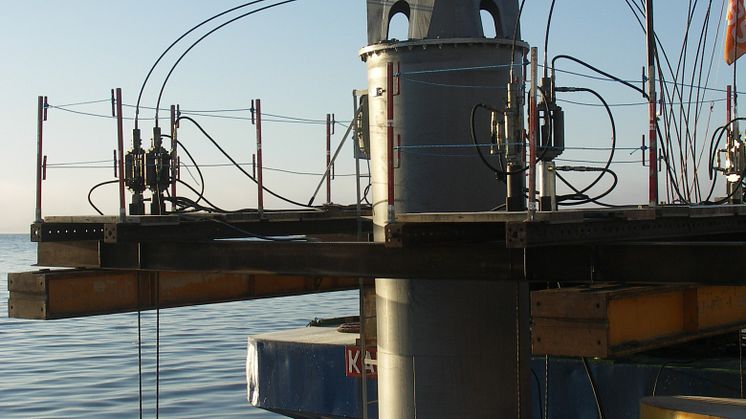Pressmeddelande -
Dissertation work led to world-leading wave power
A technology that is adapted to the special conditions for wave energy places the wave energy technology from Uppsala on the absolute cutting edge in the world. In his dissertation, Rafael Waters presents the findings from the experimental facility located in the sea outside Lysekil, Sweden, in which he has played a leading role in designing and constructing. He is publicly defending his dissertation at Uppsala University on December 12.
For nearly three years, a wave power plant has stood on the bottom of the ocean a couple of kilometers off the west coast of Sweden, near Lysekil. Rafael Waters, from the Uppsala University Division of Electricity, designed and built the facility as part of his doctoral project. The station is uniquely durable and maintenance-free thanks to its simple mechanical construction, which was engineered at the Division.
"Instead of trying to adapt conventional energy technology to the special challenges of wave energy, we developed a technology that is adapted to the ocean from the start," says Rafael Waters.
The generator in the wave power facility in Lysekil is very special. It is a so-called linear generator that generates electricity apace with the slow movements of the waves. An ordinary generator transforms rotation energy to electricity, and it needs to turn at about 1500 rpm to be efficient. It is then necessary somehow to convert the slow wave movement to a rapid rotating movement.
"This means that a wave energy station with an ordinary generator needs energy transmission systems such as gearboxes or hydraulic systems and other complicated details that wear out and require much more maintenance than a linear generator," says Rafael Waters. "Our generator has functioned without any trouble every time we started it up over the years, even though it has received no maintenance and has sometimes stood still for months."
Rafael Waters and his colleagues are busy determining parameters such as power output and buoy size in order to attain the best results in the long term.
"With smaller buoys and lower power output, there is less stress on the wave power station. On the other hand, the goal is to produce as much power as possible. This is ultimately an economic consideration, and we want to understand how to optimize the construction."
Next year the wave power facility in Lysekil will be complemented by two more plants and connected to one of the world's first wave energy parks, which will be capable of supplying household electricity to about 60 homes. In a few years' time, the park will include some ten plants.
In the long term, wave energy should be able to supply Sweden with about 10TWh of electricity per year, comparable to 12 nuclear power plants.
"But other countries have much more potential," says Rafael Waters. "Norway's waves, for instance, contain ten times as much energy as ours, and Norway's total potential is more than ten times higher than Sweden's."
Read more on Uppsala University´s website.
For more information, please contact Rafael Waters at cell phone: +46 (0)70-335 13 16; phone: +46 (0)18-471 58 07; or rafael.waters@angstrom.uu.se

